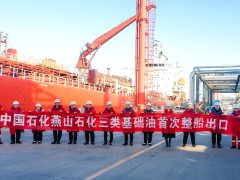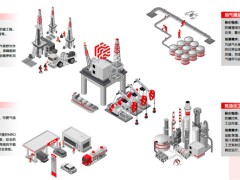据2月8日The National报道,全球能源的加速转变意味着资产不再掌握在当前的市场主导者手中。主要的欧洲石油公司正在向可再生能源和其他低碳能源转型,但如果卖家多于买家,传统能源资产又将何去何从?
壳牌(Shell)、埃克森美孚(ExxonMobil)、雪佛龙(Chevron)、英国石油公司(BP)、道达尔(Total)和埃尼(ENI)以及康菲石油公司(ConocoPhillips)和挪威国家石油公司(Norway's state Equinor)等大型石油公司已共同承诺出售680亿桶石油资源。Rystad估计,这些公司的标价达1110亿美元,约占其企业总价值的12%。他们选择剥离高碳、高成本和不断衰退的油田资产。
这不仅仅是因为竞争性能源的崛起,或者说随着气候政策收紧,石油需求的可能下降,要知道,最近石油行业的回报非常低。大公司进入页岩行业太晚,然后又需要支付过高的价格,在受到2014年底油价下跌的打击后,现在又受到新冠肺炎疫情引发的需求下降的冲击。
去年4月,壳牌自二战以来首次削减股息,埃克森美孚承认,它将无法继续增加股息,BP的股票回到了1995年的水平。
随着经济从疫情中复苏,布伦特原油价格达每桶60美元,小型和低端油田仍然具有经济吸引力。问题是,谁又有胃口和资金来收购它们呢?
超级石油巨头当然可以成为收购者,但只有在它们整合资产时才会如此。
与此同时,本世纪初那些积极推进的独立公司大多已经消失。去年1月,Premier Oil以6.25亿美元从BP手中收购北海油田的长期经营权益被削减至2.1亿美元,然后这家规模较小的公司完全退出了交易,转而与机构投资者EIG Global Energy Partners支持的Chrysaor合并。
私人股本集团一直是新独立石油公司的重要支持者,尤其是在美国页岩和北海地区,但它们也收购了超级石油巨头丢弃的产品。例如,由凯雷集团(Carlyle Group)出资的阿萨拉能源(Assala Energy)于2017年收购了壳牌加蓬公司。然而,它们也面临着越来越多的气候审查,这让人怀疑这些资产未来能带来的回报。
图洛石油曾是独立勘探公司的元老,但在加纳的产量下降、圭亚那的发现令人失望以及乌干达和肯尼亚的开发进程长期拖延之后,该公司被迫大幅减产。
在过去的十年里,美国公司基本上都转向国内投资,主要集中在页岩开发项目上,也有少数公司在西半球的其他地方冒险,比如墨西哥、圭亚那和哥伦比亚。
专家们对北美和北海油田的持续兴趣取决于当地政府的政策。如果不断收紧的环境议程阻碍了在美国的钻探,关闭了新的勘探区块,美国公司可能不得不再次到海外冒险。去年12月,欧盟最大的石油生产国丹麦禁止了新的勘探活动,这是该国计划在2050年前结束石油开采计划的一部分。
因此,如果西方集团受到阻碍,新兴市场投资者就剩下了来自中东、和其他亚洲国家的国有或民营投资者。私人投资者可能是机会主义者,但政府的投资者通常规模很大,而且有战略目标。中东国家的石油公司没有理由在本国以外的地区增加石油和天然气产量,因为欧佩克+限制了石油产量,而其国内需要资本来实现多样化。
这里的问题是,这些买家感兴趣的是高质量的收购,而不是超级巨头丢弃的东西。本月初,泰国的PTTEP同意支付26亿美元,收购英国石油在阿曼Khazzan气田20%的股权。低成本、低碳、规模大、经营周期长,这正是BP精简投资组合的核心资产。但为了实现资产剥离目标,该公司别无选择,只能出售市场需要的产品。
对于资金充足、技术能力强、灵活的大型国际公司来说,这是一个机会。即使是在市场下滑的情况下,它们也可以通过收购不受欢迎的油田,并在供应趋紧的时期获利而大赚一笔。矛盾的是,如果没有这样的买家出现,这些超级石油巨头可能很难筹集到从石油行业撤出所需的资金。
王佳晶 摘译自 The National
原文如下:
Why low-cost and low-carbon assets are attractive for big oil companies
The accelerating shift in global energy means that assets are no longer in the hands of the right owners. Major European oil companies are transiting towards renewables and other low-carbon energy. But if there are more sellers than buyers, where is the natural home for their unwanted legacy?
The supermajor oil firms – Shell, ExxonMobil, Chevron, BP, Total and ENI, plus ConocoPhillips and Norway’s state Equinor – have collectively committed to sell 68 billion barrels of oil equivalent resources, with price tag estimated by consultancy Rystad of $111 billion, about 12 per cent of their total enterprise value. They would rather divest high-carbon, high-cost and declining fields.
The prospect of this change of ownership is not just because of the rise of competing energy sources and the prospect of falling oil demand as climate policy tightens. Recent returns from the petroleum sector have been very poor: big companies got into shale production too late, then overpaid for it; they were battered by the drop in oil prices in late 2014 and now by the coronavirus-induced drop in demand.
Last April, Shell cut its dividend for the first time since the Second World War, and ExxonMobil acknowledged on its latest earnings call that it would not be able to continue growing its dividend. Stock markets have punished ExxonMobil for its large investment programme, but they have not exactly rewarded the others: BP’s shares are back at the level of 1995, before the megamergers that reshaped the firm.
As Brent crude prices near $60 per barrel amid an economic recovery from the pandemic, smaller and tail-end fields still can be economically attractive. The question is, who will have both the appetite and the cash to acquire them?
Supermajors themselves could of course be acquirers, but only where they would be consolidating ownership.
Meanwhile, the aggressive independent firms of the early 2000s have mostly disappeared. A protracted effort by Premier Oil to buy North Sea fields from BP for $625 million in January last year was cut to $210m, and then the smaller firm dropped out of the deal entirely and instead merged with Chrysaor, backed by EIG Global Energy Partners, an institutional investor.
Private equity groups have been important backers of new independents, especially in US shale and the North Sea, but also picking up the supermajors’ cast-offs. Assala Energy, for instance, funded by the Carlyle Group, bought Shell Gabon in 2017. However, they also face increasing climate scrutiny, casting doubt on how much capital they might bring to the sector in future.
Tullow Oil, once the doyen of independent explorers, has been forced to cut back heavily after declining output in Ghana, a disappointing find in Guyana and long delays to developments in Uganda and Kenya.
American companies have largely gone home over the last decade, concentrating on shale, with a few venturing elsewhere in the Western Hemisphere such as Mexico, Guyana and Colombia.
The specialists’ continuing appetite for fields in North America and the North Sea depends on government policy there. If a steadily tightening environmental agenda hampers drilling in the US and closes off new acreage, American companies may again have to venture overseas. In December, Denmark, the EU’s largest producer, banned new exploration as part of planning to end petroleum extraction by 2050.
So, if Western groups are hampered, that leaves emerging-market investors: state or privately-owned, from the Middle East and other Asian countries. Private investors may be opportunistic, but the government ones are typically large and have strategic objectives. Middle Eastern national oil companies have little reason to deepen their exposure to oil and gas production outside their home base, when Opec+ constrains production and capital is needed for diversification at home.
The problem here is that such buyers are interested in high-quality purchases, not the supermajors’ discards. Earlier this month, Thailand’s PTTEP agreed to pay $2.6bn for 20 per cent of BP’s Khazzan gas field in Oman. Low-cost, low-carbon, large and long-life, this is exactly the kind of asset that should be the core of BP’s slimmed-down portfolio. But to meet its divestment targets, the company has little choice but to sell what the market wants.
There is an opening here for well-funded, technically-capable and nimble firms from hydrocarbon-friendly countries. Even in a declining market, they could make fortunes by picking up unwanted fields and profiting in episodes of tighter supply. Paradoxically, if such buyers do not emerge, the supermajors may struggle to raise the cash they need to get out of oil.







